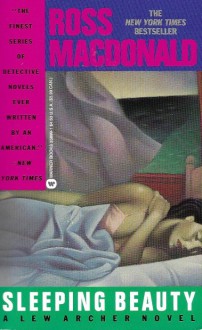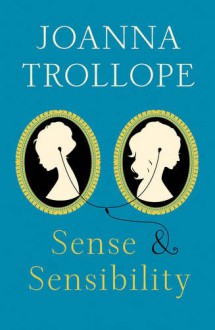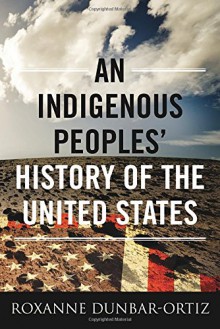
One late night, having been sucked into a dead end conversation with a drunk old man, it came out that I had studied history in college and that I had focused on Irish history.
"Irish history!?," he shouted. "Why there wouldn't be any Irish history without the English!"
The "great man" theory of history had never been laid so nakedly to me before. The idea that the decisions of British monarchs were not just a major force on Irish history, but the only thing that mattered was so obviously wrong I was flabbergasted.
Between the time when that old man's education and my own, the rote memorization of kings, presidents, and dates, while not completely out of style, had been supplemented by the stories of the people who lived in those times. Ethnic, social, and other groups that rose up in the 60s and 70s awoke people in and out of academia to an interest in what it was actually like to live at different times and places. They started to look not only at how Andrew Jackson dealt with Native American tribes, but in the tribes themselves, their histories, motives, home lives, and what happened after big events like the Trail of Tears.
Howard Zinn's A People's History of the United States was among the first and most well-known books to come out of this new school of history. It's a survey of the entirety of European presence in the United States of America, from the landing of Columbus to — in my edition — the bombing of Afghanistan after 9/11. Zinn tries to do this by collecting the stories of people who lived outside of the government: farmers, factory workers, Native Americans, African-Americans, women, domestic workers, miners, and so on.
Most of us by this time recognize the spark notes: disease and massacres against the Native Americans, slavery and stolen rights for black people, insult and deportation for Latinx, hard labor and exclusion for Chinese immigrants, and women of all ethnicities resigned to domestic servitude. These high level facts are enough to be upsetting but Zinn brings us closer in, using contemporary documents to illustrate how these played out on an individual level. What did it mean to be an enslaved black woman or a Native American family marched from their homes in Georgia to an unknown expanse in Oklahoma. These stories are even more devastating than you remember or could have imagined.
In a book that covers a great breadth of human experiences, going into detail requires that he move through subjects quickly. If you want a comprehensive dive into the civil rights movement or women's suffrage you will have to find more pointed books on those topics. Zinn acknowledges this weakness in the afterword, pointing out that he didn't go far enough into LGBTQ issues and the Latinx labor movements in California, for example, and he recommends some books for further reading on those issues, if you are interested. But by taking the time to explore these stories past the statistics, A People's History carries a punch that numbers and charts alone could not achieve.
Because of all the good that is in this book, my critiques feel minor, but there were aspects that I feel distracted from the good of the book and made it harder to finish and embrace.
My first issue actually cuts both ways. Zinn doesn't bother to retread the traditional history of many subjects. He assumes you know what is taught in favor of different wars and our westward expansion or maybe he doesn't care to make other people's arguments for them. In a way, this is clarifying. How we act as a nation, or even personally, shouldn't be subject to how others act against us. In more specific terms, if an enemy targets civilians our responsibility, if we are the force for good we insist we are, to not respond in kind. Usually we might try to soften criticism against our actions by listing off the ways others have done wrong, but Zinn offers no such quarter. This does serve as a challenge because there are almost certainly causes in American history you supported and will feel slighted by when Zinn points out the cruel American actions, say in World War II, without bothering with the disclaimer that "the other guys were worse."
I also found that A People's History works best in the parts where the name is treated literally — as a history focused on people — rather than euphemistically — see: the People's Republic of ______. As the book starts covering the rise of populism and socialism in the early 20th century, Zinn allows himself to get pulled from the stories of people living under government decisions and in a harsh, dangerous industrial economy to the political efforts he would side with. In his defense, mass demonstrations, general strikes, and calls for government control of industries have been pushed to the margins in many books, but Zinn presents a certain kind of movement as the most legitimate. As we push into the Nixon and Reagan eras his argument really gets strained. He raises up mass demonstrations as the voice of the people, but then has to get it to jibe with the electoral victories of angry, pro-capital men like Nixon, Reagan and Bush in moments that seem to be defined by activism. He looks at elections with skepticism, noting that over half the electorate stays home. This means even the landslide electoral victories represent the votes of just over a quarter of the electorate — a fair point. He attributes this to disillusionment then says the elected act undemocratically when they take positions that go against what the people believe according to polls. It's at worst a convenient belief, at best an optimistic one.
Some Democrats are now playing with the idea that a true economic populist would swing working-class voters back to their party, but Zinn seems to believe that such a platform would rewire the whole system, break down the cultural and political lines that divide natural allies in the poor, working and middle classes. I think he has to believe this. Addressing many of the systemic problems would require a huge electoral mandate ... or a turning away from democracy as we know it.
Part of his turn toward demonstrations, he acknowledges, is to offer some hope. This is a devastating book that highlights how the government has done many truly indefensible things that we now have to live with. America's is a devastating and moving history. It's also very long, and in Zinn's hands, sometimes tedious. I had to put it down for a few months — after the election — partly because it was a lot to handle and because I hit a wall.
For those who have been frightened by the openly antagonistic role of the current administration to immigrants, the poor, people of color, the LGBTQ community, and so on, this is great place to start reminding yourself that America has never been good to these groups and how easily it can slip from bad to worse. There are constant efforts to bury the sins of our past, by removing it from our schools, by decrying these facts as unpatriotic, but knowledge is the first step in making real change to address these deep-rooted problems.

 Log in with Facebook
Log in with Facebook 














